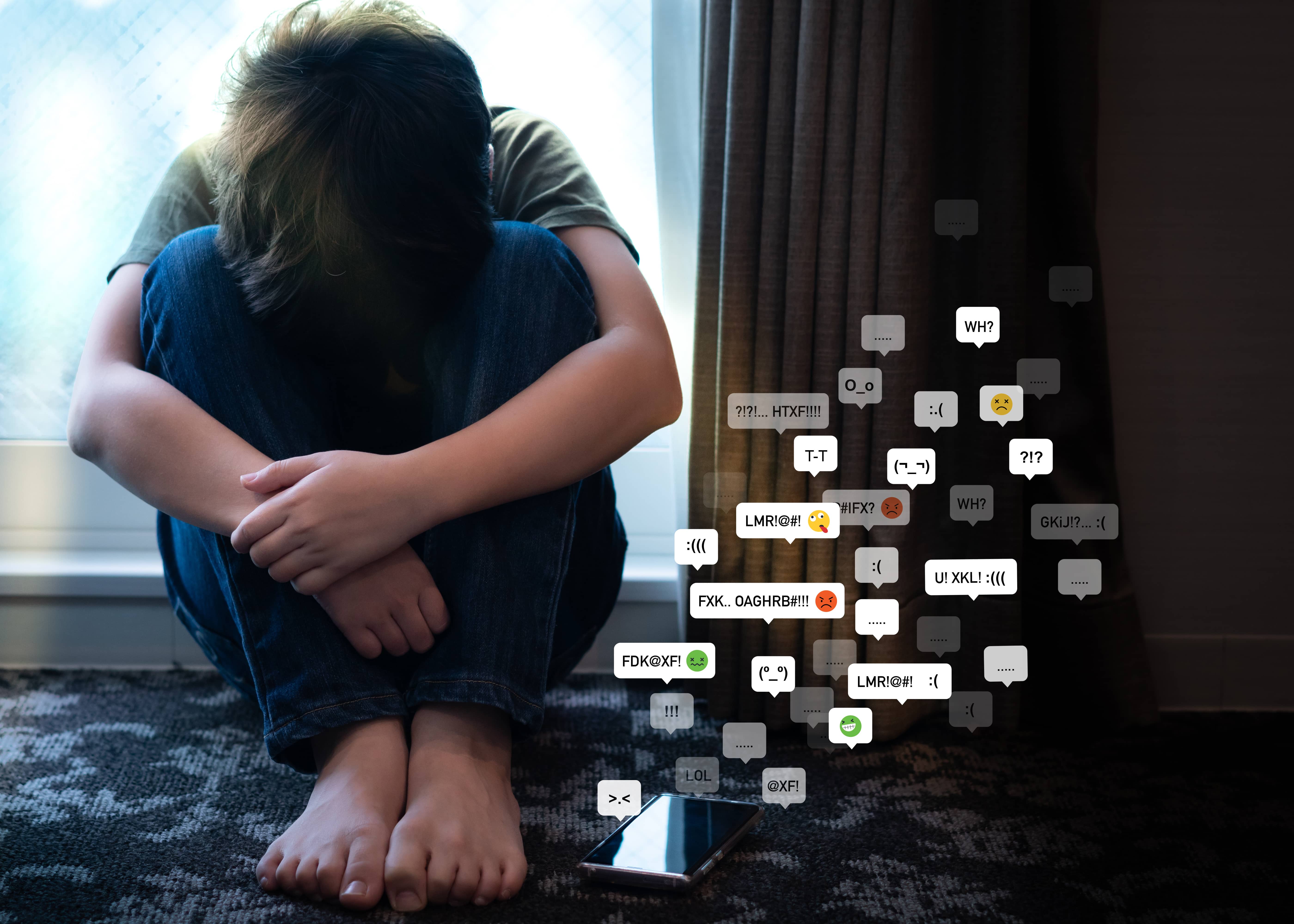This morning, a friend of mine shared a social media post about a 12-year-old boy who had just died from suicide. They attribute some of the boy’s discouragement to bullying, though I’m unsure if it was online or offline. The timing was uncanny as I was writing this article. It stopped me in my tracks.
Estimated reading time: 4 minutes

Bullying and cyberbullying can cause irreparable damage. How my heart aches for that beautiful young boy and now his family. My heart also aches for those who were participating, witnessing, and enabling this behavior.
Teenagers interact differently online. It feels like an escape for some, a way to express themselves in ways they may be unable to in person. For others, online exchanges can be a way to disguise their insecurities and worries. Unfortunately, online content, in general, can elicit strong emotions, and cyberbullying can be exceedingly hurtful.
Related Reading: Social Media is Social Currency for Kids
Many things can contribute to someone being a bully, but the result is real. Therefore, it’s crucial to identify when cyberbullying occurs and know what steps to stop it.
What Is Cyberbullying?
Cyberbullying is bullying that takes place over digital devices. It can come through social media, text messages, email, games, or forums. It includes sending, posting, or sharing negative, harmful, false, or mean content, sharing personal or private information, or causing embarrassment or humiliation to someone. In some cases, it crosses over into unlawful behavior.
Cyberbullying is particularly hurtful for several reasons. First, it’s public. A lot of people can see what’s posted, and the exposure can spread quickly. It’s also permanent. Removing unwanted content can be a complicated process and, if it remains, can contribute to negative online reputations, which can impact college admissions, employment, and personal relationships.
But one of the biggest challenges about cyberbullying is that it is hard to escape. The internet is 24/7, and those experiencing cyberbullying may have difficulty finding relief.

How to Prevent Cyberbullying
While there is no sure-fire way to prevent cyberbullying, as a parent, there is a lot that can be done to help your child create healthy digital habits.
One of the most important things you can do is build trust through open, honest discussions. Communicate your family’s expectations about appropriate digital behavior, including what content is viewed and shared and what apps they can or cannot use. Check in and communicate with your child both online and offline and be sure they understand that your intention is to look out for their well-being, not to spy. This is not a one-time event; this needs to be an ongoing dialogue.
Other important actions parents can take:
- Monitor your child’s social media sites
- Review or reset their phone location and privacy settings
- Know your child’s user names and passwords for email and social.
- Stay abreast of new apps, social platforms, and digital slang.
- Establish rules about appropriate digital behavior
- Limit the amount of screen time allowed per day.
There are also digital monitoring apps and software programs that can help monitor your child’s digital behavior and alert you when something is awry.
Most importantly, model positive, respectful behavior on your personal accounts.
Related reading: “Promote Greater Resilience in Children and Teens with 3 Simple Actions.”
Warning Signs of Cyberbullying
It’s essential to watch for signs of cyberbullying, including if your child is the one doing the bullying. Things to look for are noticeable increases or decreases in using their devices and emotional responses such as laughter, anger, or becoming suddenly upset when on their device.
Children or teens may hide their screens when others are around or avoid discussing what they are reacting to. Social accounts might get shut down, or new accounts appear. Kids may start to avoid social situations, or become withdrawn and depressed, losing interest in people or activities.
How to Stop Cyberbullying
Tips for Parents:
Create opportunities for open conversations with your children and teens. Teach them the skills they need to advocate for themselves and others. Help them to identify and replace self-defeating thoughts and negative self-talk that can make them more vulnerable to discouragement. And be sure and give them ways to belong and feel valuable in the family.

And if, despite your best efforts, you discover cyberbullying with your child or someone else’s, several things need to be done. First and foremost, support and empathize with the child who is being bullied, address the behavior, and show them that you take it seriously. Get curious and ask questions - who, when, and how it started. Be sure to document what is happening and report it to social media or gaming platforms, school officials, and if there is illegal behavior, the police. Peers, mentors, and other trusted adults can intervene online to positively influence the situation. Finally, be sure to block the person doing the bullying on all platforms.
Tips for Kids:
If you are being cyberbullied, immediately stop replying or fighting back; this is the gratification the bully is looking for. Instead, block and report the harassment. You can find information on how to report cyberbullying here.
Tell an adult such as a teacher or parent and keep telling someone until you feel heard and action is taken. Don’t delete any of the messages; show them to everyone you inform. Do not agree to meet anyone you speak to online and inform the police if you feel your safety and security are at risk. Keep in mind cyberbullying is not your fault. Some things can be done to stop it, and there is always support and help available so reach out!
Healthy Online Behaviors
It’s paramount that your children know they can come to you if they have a problem. If a child or teen thinks you aren’t going to understand or if you’ll immediately restrict or remove their internet or social media accounts, they are unlikely to come to you with problems or concerns. Kids need to discuss the issue freely instead of bottling up the problem, which can lead to depression, anxiety, self-harm, social exclusion, and academic hurdles.
If you see someone being cyberbullied, it’s essential to respond. Don’t engage in the conversation, forward, or share the content. Instead, let those doing the bullying know that it is not okay and talk to the person being bullied privately to make sure they are alright and ask if they need help. Your support can make all the difference!
We need to remember that cyberbullying thrives on a false sense of status, power, and approval. When society—which comprises each one of us—rejects this behavior, it will stop.
It will take all of us to make that happen.
For parenting support, reach out to us at support@heartmanity. We can provide you with parenting skills and emotional intelligence to help guide you through your parenting journey.

.png?width=225&name=Kali%20Gallette%20Headshot%20cropped%20(2).png)






